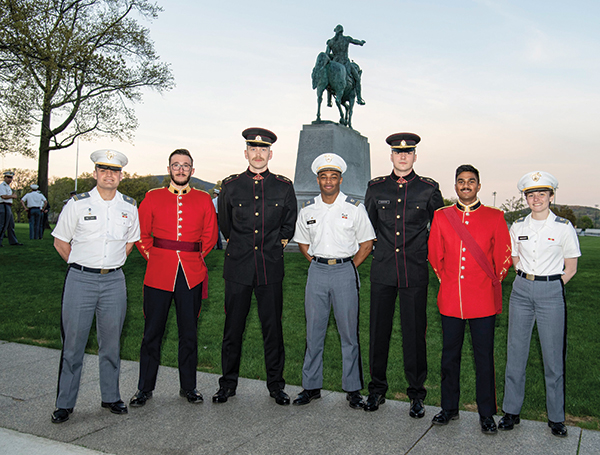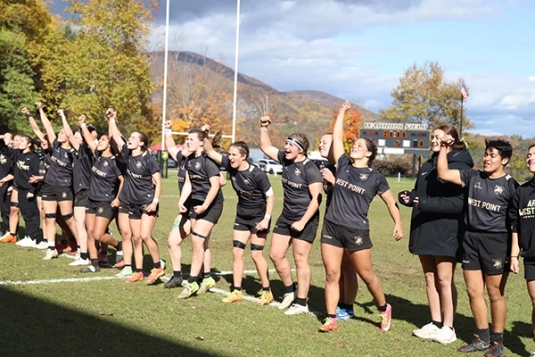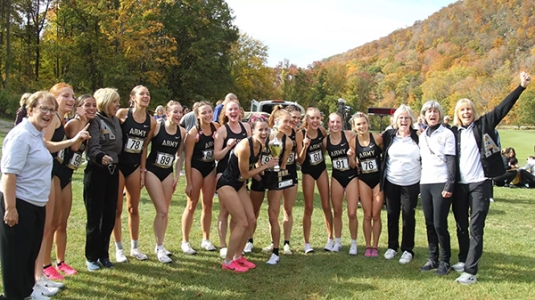By Keith J. Hamel, WPAOG staff
In April, cadet representatives from 43 countries came to West Point for a little more than a week as part of the Foreign Academy Exchange Program (FAEP). One month earlier, during spring break, 88 USMA cadets traveled to these countries to improve their foreign language skills and knowledge of a local culture as part of FAEP.
Now in its 64th year, FAEP is one of USMA’s security cooperation programs managed by the Academy’s International Affairs Division. As such, it’s regulated by Headquarters, Department of the Army guidelines, as well as by Army Regulation 11-31 (Army International Security Cooperation Policy). The mission of FAEP is to promote goodwill and foster partnerships between USMA and the service academies of other nations in the hope that these partnerships will increase long-term military-to-military engagements between the United States and other allied nations. “More than half of the foreign area officers that I’ve encountered in my career are former FAEP cadets,” notes J. Shane Hatcher, Chief of International Affairs at USMA. Even if they do not become a liaison with a foreign military operating in coalition with U.S. forces, those who participated in FAEP as cadets will be able to use the personal friendships they developed to further professional contact and relations with their FAEP country as an officer. “It’s easier to call a friend for information or a favor than to cold call someone you don’t have a relationship with,” says Hatcher.
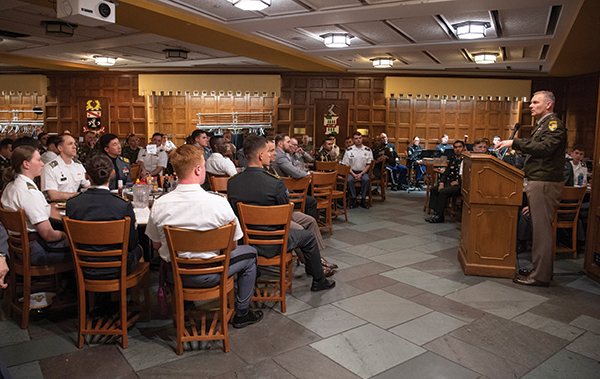
“I’m hoping to keep a positive relationship with my FAEP partner so we can continue to learn from each other,” says Cadet Mackenzie Courtright ’24, who visited the General Jonas Žemaitis Military Academy of Lithuania in Vilnius on her spring break.
“I believe that FAEP has increased my cross-cultural competencies and has strengthened my ability to make connections with partner nations,” says now Second Lieutenant Jordyn Kenkel ’23, who attended the Dr. Franjo Tudman Croatian Military Academy for a week last March.
While FAEP certainly provides cadets a glimpse into a possible future role they may have as officers in the operational Army, in the more immediate sense it shows them how USMA compares to other nations’ military academies and informs them about how the world views West Point and the U.S. Army.
USMA vs. International Military Academies
“During my visit to the Korean Military Academy [KMA] in Seoul, South Korea, I was surprised to find how similar many of its military customs, routines, structures and more were to USMA,” says now Second Lieutenant Anthony Haynes ’23. “That is until my host cadets informed me, something to the effect of, ‘Yes, we modeled it after West Point to a great degree.’”
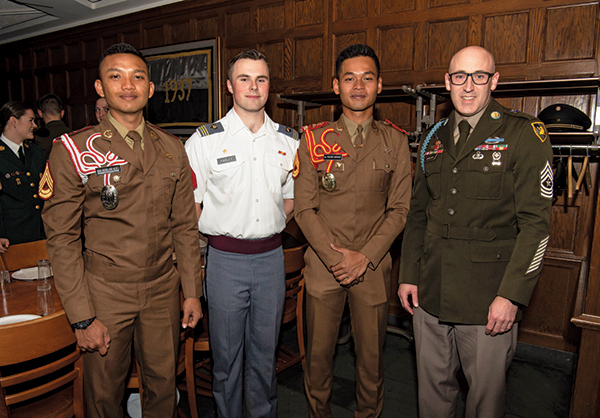
As it turns out, several of the international military academies that USMA cadets visited during FAEP were designed to resemble USMA or have some connection to the Academy. “Croatia sees West Point as the blueprint for their academy, and it focuses on inculcating excellence in the military, academic, physical, and character pillars,” says Kenkel.
“West Point is certainly a model to follow,” says Luca Giacchetta and Fiornzo Zanoni, two cadets from Italy who visited USMA in April as part of FAEP. “Our commander, who stayed at West Point for three years as an International Officer Instructor, told us before our trip that the organization and structure on display here are amazing.”
Of course, access to resources and the needs of their homeland army prevent these international military academies from copying USMA exactly. “KMA did not have the same expansive training area that we are afforded thanks to Camp Buckner and the ranges of the West Point training reservation,” notes Hayes.
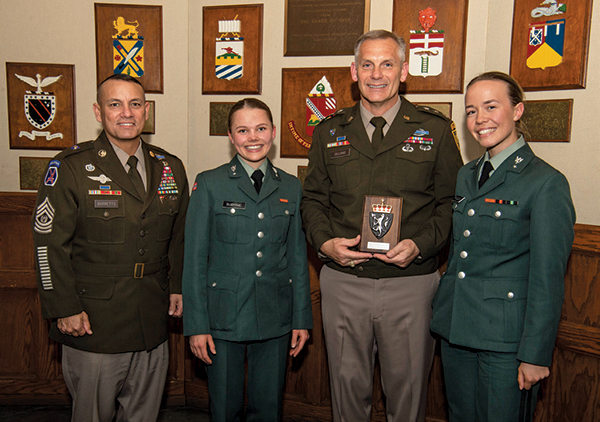
Indeed, it’s not surprising to learn that most international military academies are much smaller than West Point. “The military academy in Kosovo had less than 20 cadets in each grade,” remarks now Second Lieutenant Alyssa Austin ’23. What may be surprising is that USMA cadets noted that some of these small academies place a large emphasis on military training. “Kosovo cadets perform more field training exercises during the academic year than West Point cadets do,” says Austin, “but they use the same doctrine we use at West Point.”
“The Finnish academy is much more focused on military training,” says now Second Lieutenant Michael Kovacevic ’23. “Furthermore, since all their cadets are prior conscripts, their academy training places less emphasis on basic skills training and instead focuses on certifying cadets to lead exercises.”
“I believe that FAEP has increased my cross-cultural competencies and has strengthened my ability to make connections with partner nations.”
— Now 2LT Jordyn Kenkel ’23
There are academic differences between academies too. “USMA has a two-day system and cadets take five academic classes at once for the entire semester,” says Courtright. “Cadets attending the Lithuanian academy, on the other hand, take one class intensely for three weeks and then switch to a new class, adding up to the same number of classes for the semester.”
“The Croatian military academy only offers two major fields of study,” notes Kenkel: “Military Leadership and Military Engineering, both of which qualify their students for different branches.”
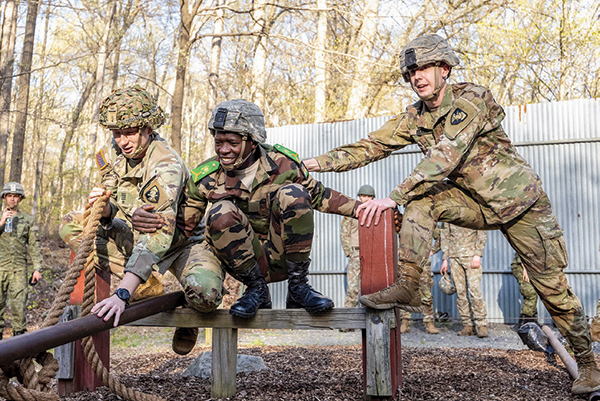
“Kosovo cadets take classes at the Rochester Institute of Technology-Kosovo along with civilians,” says Austin. “Additionally, their education is geared towards the humanities and international relations, with no engineering majors.”
Finally, there are certain differences between academies that speak to cultural differences, if nothing else. “In Finland, a cadet can be thrown into the ocean for breaking an academy rule,” says Kovacevic. [Who says “walking the Area” is the worst punishment?]
At the Royal Danish Military Academy, which is only a two-year program, cadets are generally 10 years older than their West Point counterparts. “This makes our academy a bit more relaxed than what is seen around West Point,” says Rasmus Clausen, a Danish FAEP cadet. “Then again, our entire army is the size of the Corps of Cadets.”
How the World Sees West Point
“We have just joined NATO and are looking to extend cooperation with partner nations. So, I am expected to go back after this week with good relationships from FAEP so that I can help build a network of American partnerships for the future.”
— Aapo Ankeriasnieme, FAEP participant from Finland
“West Point is viewed very favorably in Kosovo,” says Austin. Its citizens are very thankful for the role the U.S. military, led by several West Point graduates, played in ending the genocide against Kosovo citizens in the late 1990s and in helping to build the subsequent Kosovo military.
“West Point is where the world’s best leaders are made, ones that have global impact,” says Naser Sekiraqa, a Kosovo cadet who came to West Point in April as part of FAEP. “My family was really impressed when they heard we were going to West Point for FAEP,” says Ermanda Meshi, Sekiraqa’s countrymate. “They knew we were only coming for 10 days, but they were telling us that the impact could last a lifetime.”
Similarly, Haroua Abdou Moumouni, one of two FAEP cadets from Niger, says, “When people in my country heard we were going to West Point, they told us, ‘Oh, you are very lucky!’”
Moumouni acknowledges that those in Niger have limited knowledge about West Point, but those who do know about it see it as a prestigious institution.
“My experience in Finland showed that there is some knowledge of West Point among Finnish cadets and officers but not a strong understanding of its systems of training,” says Kovacevic.
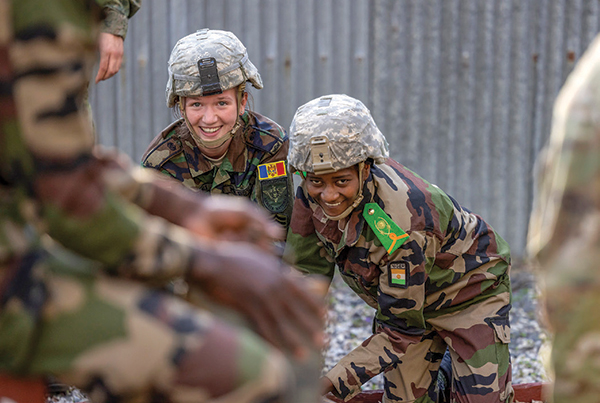
“Everybody in Finland knows West Point exists, but they kind of see it as this huge, mystical place,” says Aapo Ankeriasnieme, whom the Finnish National Defense University (NDU) assigned to attend FAEP. Coincidentally, NDU’s American football team is called the Black Knights. Furthermore, Hanna M. Parikka ’96 graduated from West Point as part of USMA’s four-year International Cadet Program. “I read a story about her before coming to West Point to get some context of the place,” Ankeriasnieme says.
Hayes tells an interesting story about how South Koreans view West Point and the U.S. Army: “When visiting Seoul, we encountered several civilians who recognized our uniforms and were very impressed by our association with USMA. It was one of the most affirming experiences I have had as a cadet, to truly see the effects the U.S. Army made in contribution to the defense of Korea during the Korean War. It gave me more of a concrete purpose to my own service, to hopefully make as meaningful a contribution someday.”
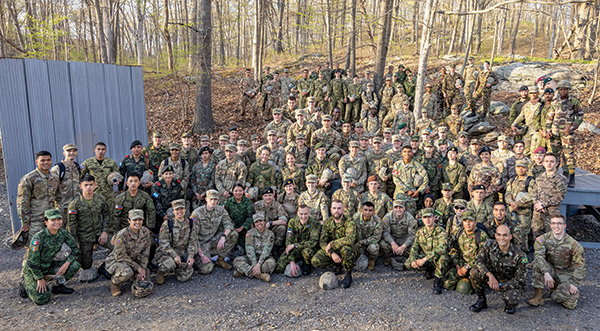
Upon returning to their home military academies, many FAEP cadets are expected to share the experience and knowledge they gained during their weeklong visit to West Point. “We will do a report on how USMA cadets are being trained and how classes are conducted here,” says Moumouni.
Other military academies and countries, as in the case of Finland, are expecting even more from FAEP. “We have just joined NATO and are looking to extend cooperation with partner nations,” says Ankeriasnieme. “So, I’m expected to go back after this week with good relationships from FAEP so that I can help build a network of American partnerships for the future.”
This again speaks to the FAEP’s larger mission, long-term military partnerships for the mutual benefit of allied nations. Those countries participating in FAEP may glean the ways that USMA trains future officers and view West Point as the premier model of leadership to follow in this regard; however, as Austin suggests, the mission goes both ways.
“I think my experience in FAEP will impact my future with the Army by giving me an understanding of what life is like in another country and about the military training that the foreign counterparts we might work with in the future go through,” she says. “A shared understanding of each other’s culture and a little bit of knowledge about how their country’s military operates will pay dividends thanks to FAEP.”
The Real-World Impact of FAEP
“I think my experience in FAEP will impact my future with the Army by giving me an understanding of what life is like in another country and about the military training that the foreign counterparts we might work with in the future go through.”
— Now 2LT Alyssa Austin ’23
In the spring of 2018, Joseph Haro, a cadet with the Escuela Superior Militar “Eloy Alfaro,” a training school for officers of the Ecuadorian army, visited West Point for a week as part of the Foreign Academy Exchange Program (FAEP). His host cadet was Daniel Lucio ’19. Lucio introduced Haro to one of his I-1 companymates, Ethan Press ’19, and Press and Haro soon became good friends. They kept in contact after FAEP, communicating through social media the past few years.
Today Haro is a Special Forces officer in the Ecuadorian army who leads a 15-man team in counter drug-trafficking operations, while now Captain Press is an officer with the 7th Special Forces Group (Airborne). Earlier this year, the 7th SFG (A) was charged with building MOUT (Military Operations in Urbanized Terrain) sites at three bases in Ecuador, one of them being Haro’s home base.
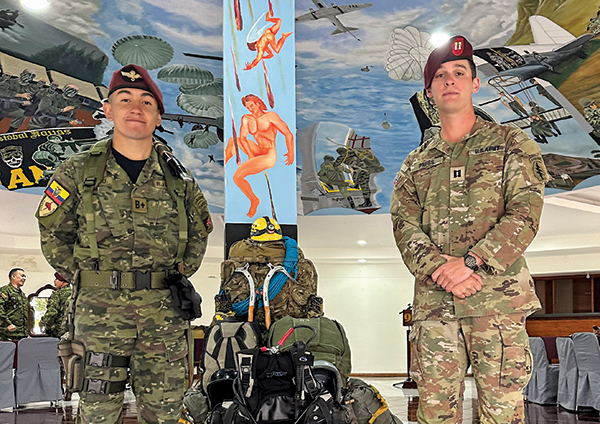
According to Press, his relationship with Haro contributed to stronger communication and interoperability between 7th SFG (A) engineers and Ecuadorian army engineers. “It took our joint team 14 days to construct six 16-foot-by-32-foot B-Huts at the site in Manta, but in Latacunga, the site of Joseph’s base, it took only six days to build the huts,” says Press.
“I did not directly participate in FAEP; however, understanding its mission and intent, I would say from my experience that it has tremendous value in forging relationships between future military leaders of partner nations,” Press says. “Only after one week of hanging out together at West Point during FAEP, Joseph and I established a strong enough relationship to have an impact when working together operationally five years later.

